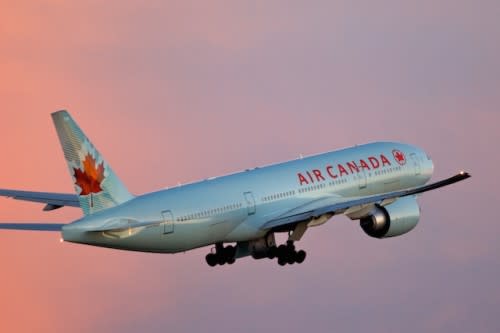Here’s Why You Should Invest in the Airline Industry Now

Airlines are notoriously bad investments. Or, at least they were, up until about the last two years or so. Typically, airlines go through periods of profit and growth, followed by periods of barely breaking even. When the growth period starts, airlines invest heavily in new planes, upgraded cabins, new livery designs, and new routes.
So why would anyone invest in an airline?
We?re currently in one of those growth cycles, which is unlike any other ? ever. Due to mergers over the past two decades, there are fewer airliners in the market than ever before, which has made streamlining and consolidating routes easier than ever. From Air Canada (TSX:AC)(TSX:AC.B) acquiring Canadian Airlines nearly two decades ago to American Airlines Group Inc. (NASDAQ:AAL) taking US Airways less than two years ago, the competitive landscape has changed considerably.
Delta Air Lines Inc. (NYE:DAL), United Continental Holdings Inc (NYSE:UAL), and Southwest Airline Co (NYSE:LUV) also did their fair share of mergers that have resulted in putting four behemoths in the U.S. market, along with Air Canada in the Canadian market, in prime positions.
The mergers started the current cycle, but new fleets and reduced fuel costs really set the market ablaze. Nearly a decade ago, fuel prices were more than double their current levels, and airliners were slapping fees on just about everything to offset fuel prices. Fast forward to today, and many of those charges are still there, but fuel prices are considerably lower.
All major airlines have also invested in new fleets over the past few years; some opted for the ultra-efficient Dreamliner offered by The Boeing Co., while both Air Canada and Delta opted to augment that order with Bombardier Inc.?s CSeries. The result is the same though: they have new aircraft that can fly further, sometimes with more passengers and cargo, for less fuel.
The complete picture of the airliner landscape now consists of newer planes, lower fuel costs, larger airlines, and less competition. Do you see the potential yet? But wait ? there?s more.
Remember that cycle I mentioned before? We are in one now, but a clear difference from previous cycles is that airliners aren?t spending on growth the way that they once were. They are doing modest improvements over the course of several years that should result in the current profit run withstanding any dip in future quarters.
What about growth?
Growth across this latest cycle has been phenomenal. American Airlines is up by nearly 30% in the past two years since the merger with US Airways. United Continental is up 66% in those same two years and up by a whopping 224% in the past five years.
Delta, which merged with Northwest just over a decade ago, is up by over 370% in that same five-year period and offers a dividend with a 1.5% yield.
Air Canada?s growth is even more impressive with the stock soaring 83% in the past 12-month period alone.
Investors have good company too
Airliners have attracted a fair amount of attention lately from investors, including none other than renowned investor Warren Buffett. Buffett has been notoriously against investing in airlines, noting as recently as 2013 that an investment in airlines was a ?deathtrap.?
That hasn?t stopped Berkshire Hathaway Inc. from investing in the biggest U.S.-based carriers on two separate occasions in the past six months.
In all, the ?Oracle of Omaha? now has over US$10 billion invested in the airline industry, and with no indication of the good times ending anytime soon, the profits and growth will continue to roll in for some time.
In my opinion, Airlines are promising investments, at least for the moment. Nearly all the big airlines have posted record-breaking results over the past few quarters, and that trend doesn?t appear to be ending anytime soon.
Two New Stock Picks Every Month!
Not to alarm you, but you're about to miss a very important event! Chief Investment Adviser Iain Butler and his team at Stock Advisor Canada are about to reveal their latest official stock recommendation. The premium "buy alert" will be unveiled to members and you can be among the first to act on the tip.
Don't let this opportunity pass you by - this is your chance to get in early!
Click here to find out how you can get instant access!
More reading
Fool contributor Demetris Afxentiou has no position in any stocks mentioned. The Motley Fool owns shares of Berkshire Hathaway (B shares).
Two New Stock Picks Every Month!
Not to alarm you, but you're about to miss a very important event! Chief Investment Adviser Iain Butler and his team at Stock Advisor Canada are about to reveal their latest official stock recommendation. The premium "buy alert" will be unveiled to members and you can be among the first to act on the tip.
Don't let this opportunity pass you by - this is your chance to get in early!
Click here to find out how you can get instant access!
Fool contributor Demetris Afxentiou has no position in any stocks mentioned. The Motley Fool owns shares of Berkshire Hathaway (B shares).

 Yahoo Finance
Yahoo Finance 